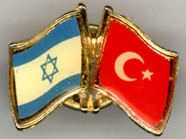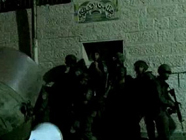Renowned Israeli author and veteran Peace Now (Shalom Achshav) leader Amos Oz has written an important and powerful
op-ed on the Gaza flotilla debacle, published in today's New York Times. It is recommended reading for all who love Israel and who are watching with anguish to what happened yesterday on the Mediterranean and its aftermath.
Israeli Force, Adrift on the Sea
By AMOS OZ | June 1, 2019 | ARAD, IsraelFOR 2,000 years, the Jews knew the force of force only in the form of lashes to our own backs. For several decades now, we have been able to wield force ourselves -- and this power has, again and again, intoxicated us.
In the period before Israel was founded, a large portion of the Jewish population in Palestine, especially members of the extremely nationalist Irgun group, thought that military force could be used to achieve any goal, to drive the British out of the country, and to repel the Arabs who opposed the creation of our state.
Luckily, during Israel's early years, prime ministers like David Ben-Gurion and Levi Eshkol knew very well that force has its limits and were careful to use it only as a last resort. But ever since the Six-Day War in 1967, Israel has been fixated on military force. To a man with a big hammer, says the proverb, every problem looks like a nail.
Israel's siege of the Gaza Strip and Monday's violent interception of civilian vessels carrying humanitarian aid there are the rank products of this mantra that what can't be done by force can be done with even greater force. This view originates in the mistaken assumption that Hamas's control of Gaza can be ended by force of arms or, in more general terms, that the Palestinian problem can be crushed instead of solved.
 On June 30, 2010, APN's board adopted the following policy language regarding Turkey:
On June 30, 2010, APN's board adopted the following policy language regarding Turkey:
